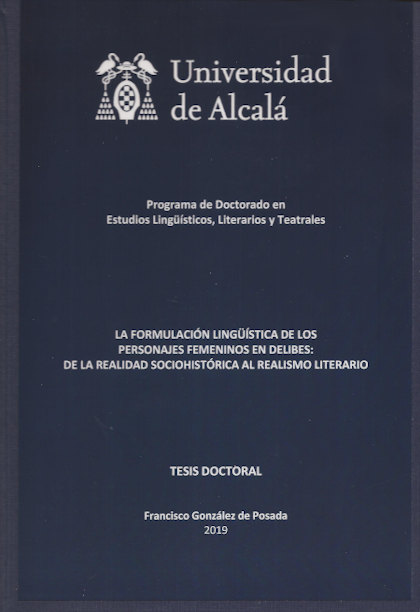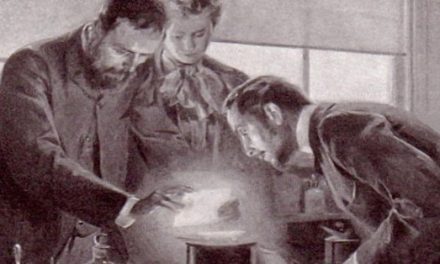González de Posada completes his sixth doctoral thesis, in Philology
 Francisco González de Posada, president of the Academy of Sciences, Engineering and Humanities of Lanzarote and regular contributor of the Royal European Academy of Doctors-Barcelona 1914 (RAED), presented his sixth doctoral thesis last July at the University of Alcala with the title “La formulación lingüística de los personajes femeninos en Delibes: De la realidad sociohistórica al realismo literario” (The linguistic formulation of female characters in Delibes: From socio-historical reality to literary realism), in which he conducts a study of the conception of reality offered by physics, metaphysics, social philosophy, sociology and linguistics in the construction of the genre cultivated by the Spanish author and, in particular, the role of women in his work. One theme, he says, that a proposal from his thesis director, the professor of this university María Ángeles Álvarez, and that to do this analysis his multidisciplinary knowledge of physics, metaphysics, social philosophy and sociology have been fundamental.
Francisco González de Posada, president of the Academy of Sciences, Engineering and Humanities of Lanzarote and regular contributor of the Royal European Academy of Doctors-Barcelona 1914 (RAED), presented his sixth doctoral thesis last July at the University of Alcala with the title “La formulación lingüística de los personajes femeninos en Delibes: De la realidad sociohistórica al realismo literario” (The linguistic formulation of female characters in Delibes: From socio-historical reality to literary realism), in which he conducts a study of the conception of reality offered by physics, metaphysics, social philosophy, sociology and linguistics in the construction of the genre cultivated by the Spanish author and, in particular, the role of women in his work. One theme, he says, that a proposal from his thesis director, the professor of this university María Ángeles Álvarez, and that to do this analysis his multidisciplinary knowledge of physics, metaphysics, social philosophy and sociology have been fundamental.
“The first thing that can be said is that Delibes is a writer of male characters. The role that women will play is secondary; used, in one way or another, to highlight or characterize male characters. There are two novels, however, in which the woman occupies the role of co-star: Carmen, from ‘Five Hours with Mario’, although it’s the way that Delibes uses to draw Mario, a woman who profiles with strikingly negative features; and Ana, a reflection of his wife , in the novel ‘Señora de rojo sobre fondo gris’, where he presents her as a model of perfection of physical, intellectual and spiritual virtues”, explains González de Posada.

Dr. Francisco González de Posada
Throughout his five decades of literary production Delibes uses numerous female archetypes in his novels, usually in secondary roles, which for the student allow to see how the role of women in Spain has evolved and their perception in the second half of the century XX. “There is an initial archetype of the peasant woman, the Desi, who emigrates to the city to serve and whose dream is to marry a boy from her village, but as time goes by there is also the archetypal university girl, Lali, in ‘El disputado voto del señor Cayo’, which shows the beginning of the process of the feminist movement in Spain. Together with them, the archetype of married citizen women that will conclude with the Anita of the year 1995, in ‘Diario de un jubilado’, that in the Chile of the 50s, ‘Diario de un emigrante’, had started to work, with some independence and to collaborate in the maintenance of the family”, he explains.
There have also been five decades that González de Posada has dedicated himself to teaching and research in Fundamentals of Physics and it has been after his retirement as a professor at the Polytechnic University of Madrid when he has resumed his studies to do the doctorates in Theology, Philosophy, Sociology and Medicine. Now, he has just defended his thesis of Philology at the University of Alcala, culminating his sixth doctorate in Philology.




